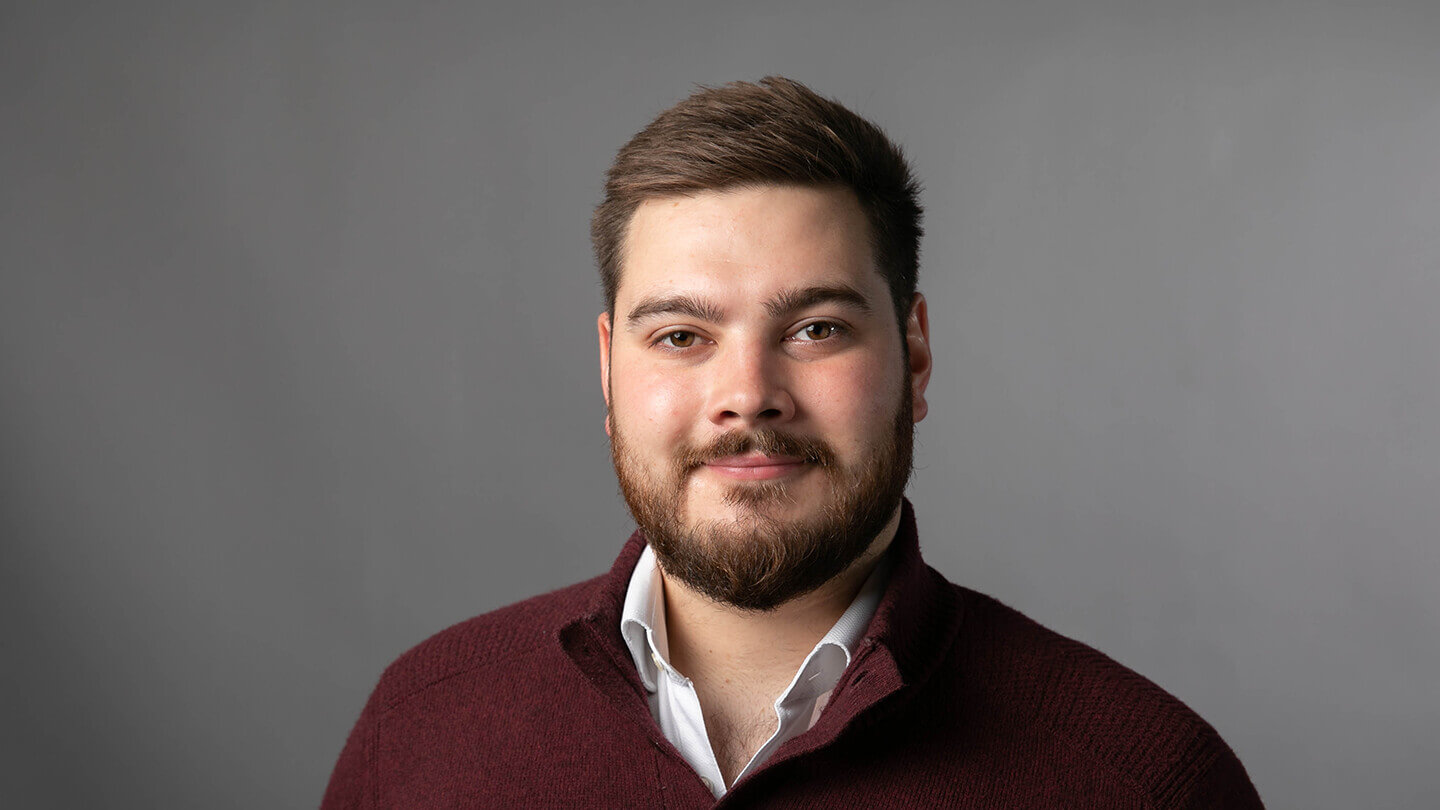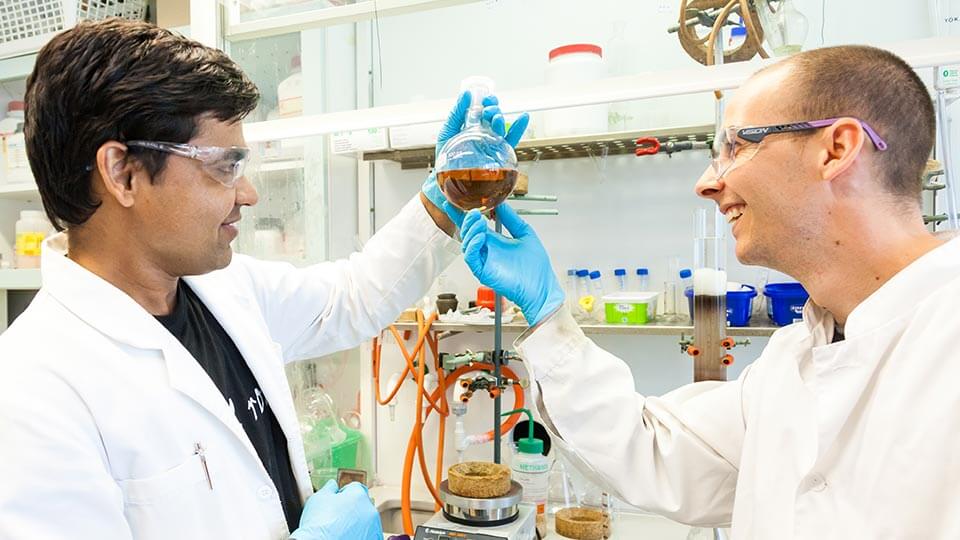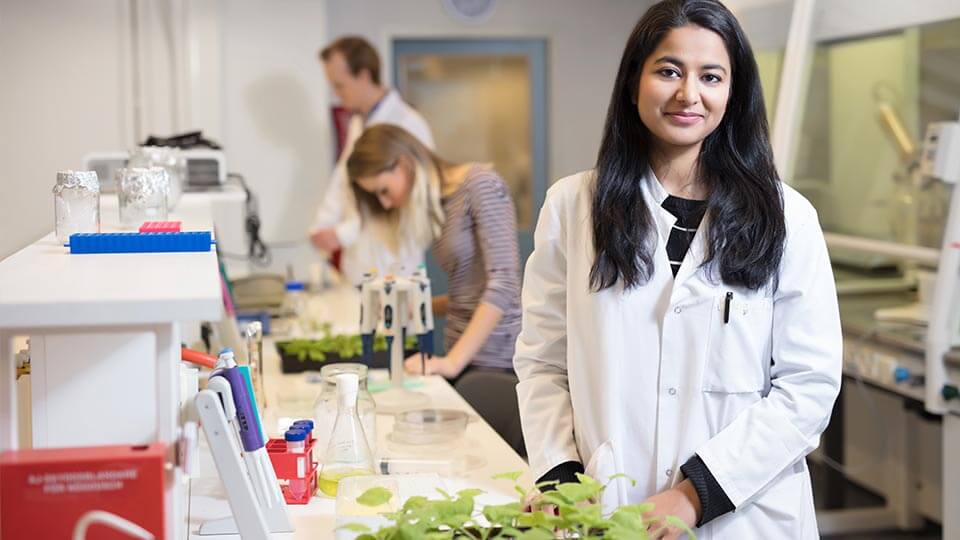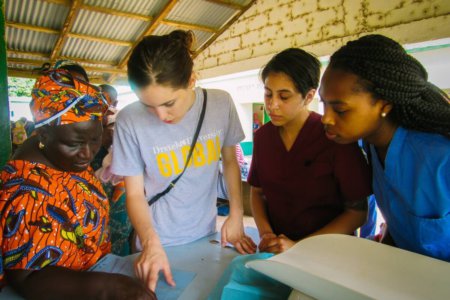When Alexander James Spicer was on the hunt for the perfect destination for a master’s that would help him shape the future of global wellbeing, he didn’t have to look too far. After graduating with an undergraduate degree in biomedical sciences in the UK, the Cambridge born graduate went on to work for Faron Pharmaceuticals.
His experience with the Finnish company — which focuses on tackling immune system-triggered diseases — sparked his interest to study health technology with a Master’s Degree Programme in Biomedical Sciences: Drug Discovery and Development. He knew there was no better place to advance his knowledge in the field than in Turku –– a city home to resources that form the largest educational hub of drug development and healthcare in Finland.
Finland — a leader in digital health
Finland boasts of one of the strongest health-technology economies globally, something Spicer couldn’t help but notice.
“I had worked alongside many Finnish biotechs during my time in sales after graduation, so I knew that Finland had some interesting technology,” says Spicer. “Furthermore, some of the achievements the University of Turku (UTU) had accomplished in medicine were incredible, and I could not think of a better place to learn this craft.”

Alexandar Spicer Source: The University of Turku
He was right. Finland is known for introducing the latest, most effective technologies to the sector and the world. Today, the country stores all patient records in an electronic format, while international researchers use the data to solve global challenges in healthcare.
Finland’s health tech is the largest and one of the fastest-growing export segments of the high-tech industry. Several groundbreaking health innovation-focused startups are based here –– think Osgenics and its efforts to prevent costly errors in surgery — or Negen and its efforts to provide risk assessment for chronic diseases.
Several trusted research organisations call Finland home, including GE Healthcare and Bayer. The country’s cancer expertise speaks volumes too. The country is also an attractive health travel destination — Finland’s cancer treatment results rank among the highest in the world. It is also home to some of the best scientists and engineers in digital health.
A multidisciplinary education, anchored by research
These reasons and more make a postgraduate degree from UTU alluring –– countless industry experts are based here, and several master’s programmes are producing a new generation of health industry innovators.
UTU also has a long history of educating experts in biomedical sciences. With the newly established Faculty of Technology, the programmes are even better equipped to educate students for careers in future health. Students learn to apply their newfound knowledge to benefit people, businesses, and society, in addition to solving other complex problems.
Pairing future-focused teaching with excellence in research means finding new possibilities in future health has never been more inspiring. Here, programmes are based on the university’s strength in research, and many are organised in collaboration with multiple faculties. The multidisciplinary approach provides students with problem-solving skills needed when tackling the complex challenges of global wellbeing.
This provides students with the unique opportunity to combine biotechnology, bioimaging, and drug development –– the path Spicer decided to follow. He knew that he had made the right decision.

Source: University of Turku
“The highlight for me has been the flexibility of elective modules,” he says. “You have your standard course, but the rest of your 40 credits can come from anywhere. Apart from learning the basics of drug discovery, I have spent my master’s growing in the areas of global development, sustainability, economics, law, drug manufacturing, and entrepreneurship. This is something I would have never been able to achieve in the UK.”
The programme has also been highly experiential. During his project in Drug Development and Learning, Spicer and his peers got to identify a target and build a company and drug around it. It taught him to include a business plan, on top of scientific, clinical, and regulatory strategies.
Spicer hopes to use his newfound knowledge from his postgraduate degree to improve his job prospects and climb the ranks further. “I believe these skills will allow me to become more well-rounded within the organisation,” he says.
How to join the journey?
UTU offers several pathways to students who wish to evolve similarly. The university offers over 10 programmes or programme tracks in health, life sciences, and technology. On Nov. 10, 2021, UTU will be hosting Study and Stay in Turku, a virtual event that will answer any queries students have about studying and working in Finland. Click here to join, and take in the insights of international alumni who have built rewarding careers and lives for themselves in the country.
On October 21, UTU also hosted the Future is Made in Finland weinar series’ Episode III: Digital Health, featuring some of the brightest minds in healthcare, technology, diagnostics, and medicine. Together, they discussed the global future of health and how aspirants can partake in the journey. Click here to watch the recording.
Subscribe to the Future with UTU newsletter to be notified about important dates and events.












